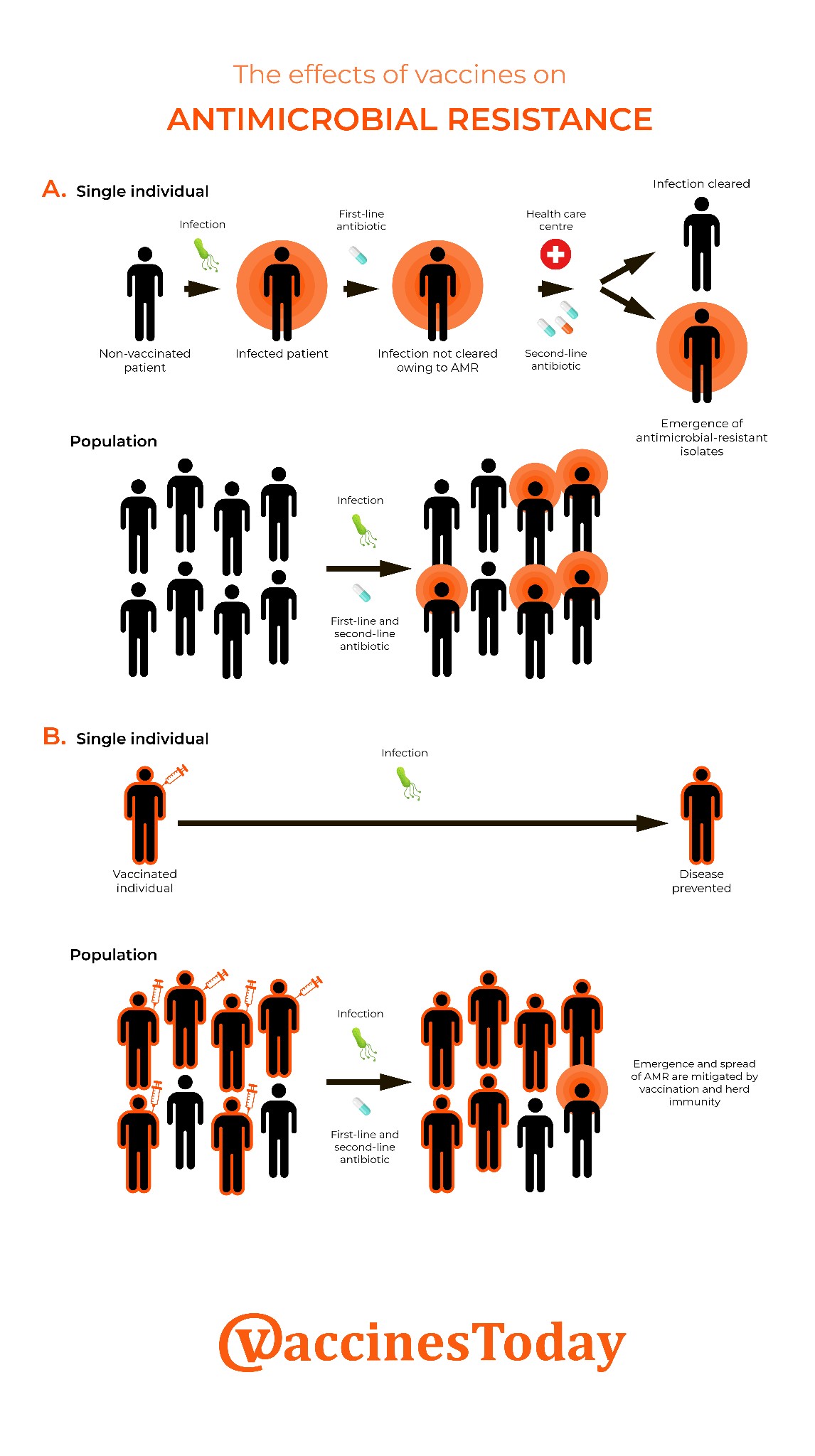Antimicrobial Resistance (AMR) & Vaccines AMR, or antimicrobial resistance, happens when bacteria and other microorganisms change after being exposed to antimicrobial drugs.
This can make routine surgery higher risk because infections may not be treatable with mainstream antibiotics. More than 670,000 infections occur every year in the EU/EEA due to antibiotic-resistant bacteria. These bugs are also associated with thousands of deaths.

New therapies and prevention strategies are needed urgently. Vaccines offer a long-term approach to infection prevention, because pathogen resistance to vaccines is not common.
Both influenza and pneumococcal vaccines have resulted in a dramatic reduction in disease and are linked to a decreased incidence of resistant strains. If sufficient vaccine coverage is achieved in a population, indirect protection (herd immunity) further prevents the spread of resistant strains.
In addition, scientists are working on vaccines against resistant microorganisms which would further reduce the risk to individuals, communities and our health systems.
By keeping your vaccines up to date and using antibiotics only as advised by healthcare professionals, you are playing your part in curbing the growth of AMR.




